25. Project “Public Administration Education Quality Enhancement – PAQUALITY”
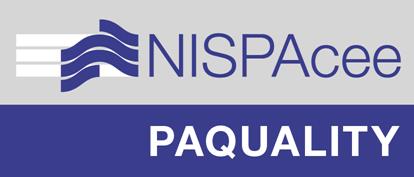
Projects Budget: 384 668 €
Duration of the project: 01.09.2018 – 31.08.2021 (36 months)
On 08.05.2021 at Varna Free University “Chernorizets Hrabar” was held a Multiplier event under the "2018-1-SK01-KA203-046330 “Public Administration Education Quality Enhancement – PAQUALITY” Project, Erasmus + Program, KA2, " Strategic partnerships".
The event was attended by representatives of academia, public authorities and alumni.
At the beginning of the event, the Project Manager and the Coordinator from Bulgaria welcomed the participants and presented the goals and main activities of the project.
The second part of the event was more practical, opinions were exchanged, an open discussion was held, good practices from the applied real stories at the local level were presented.
All intellectual results prepared so far, as well as those under development, were presented and discussed.
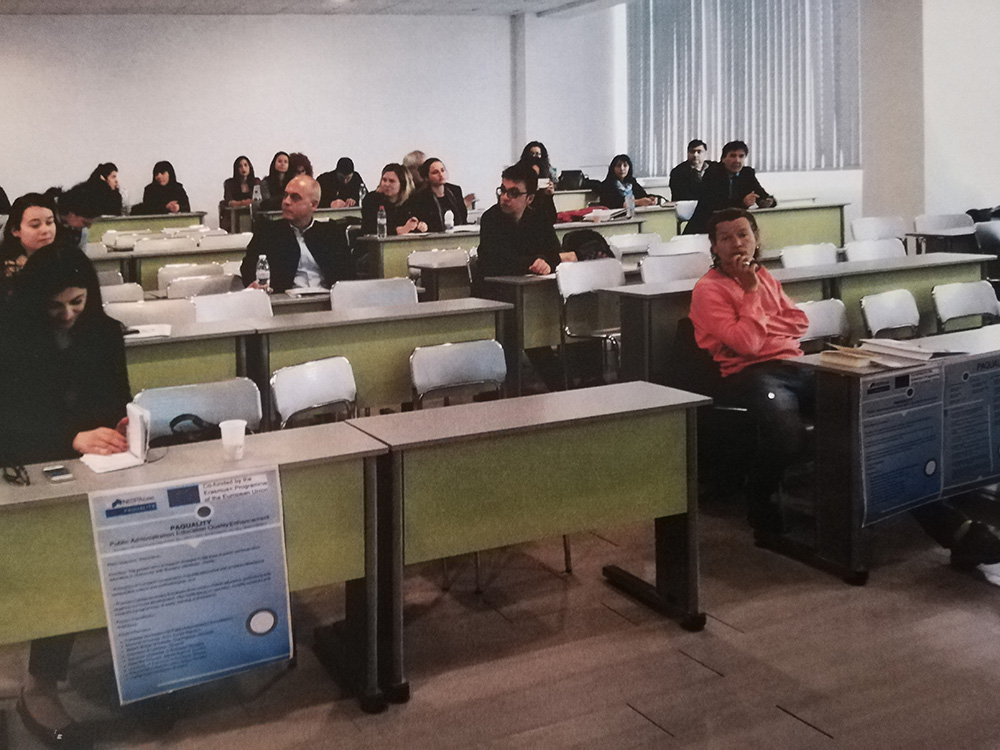
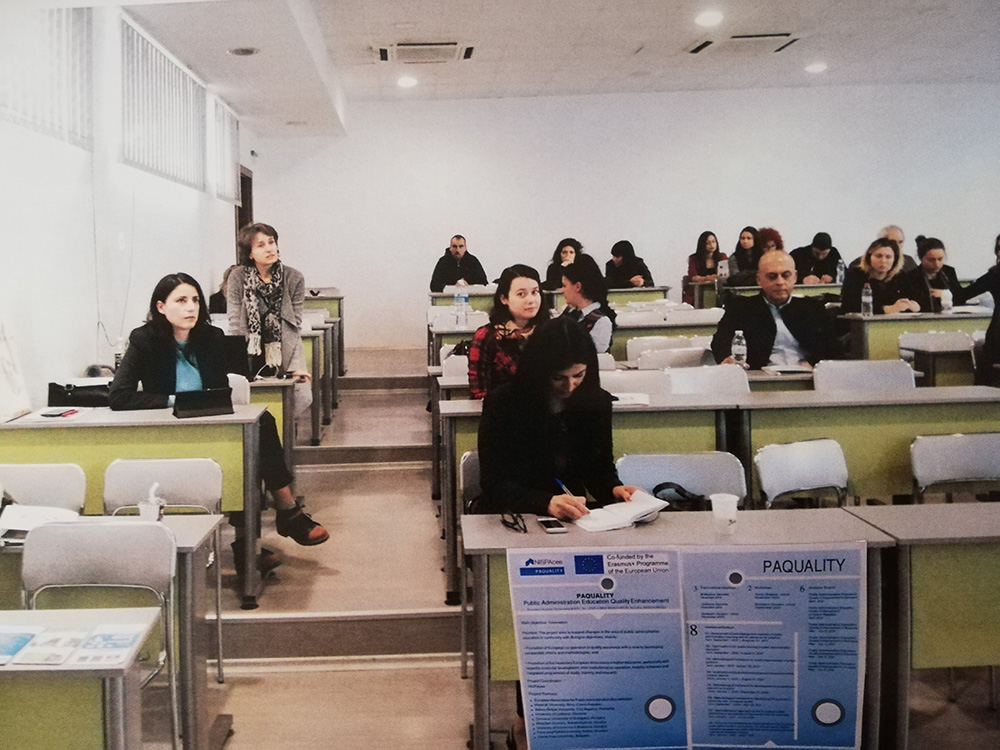
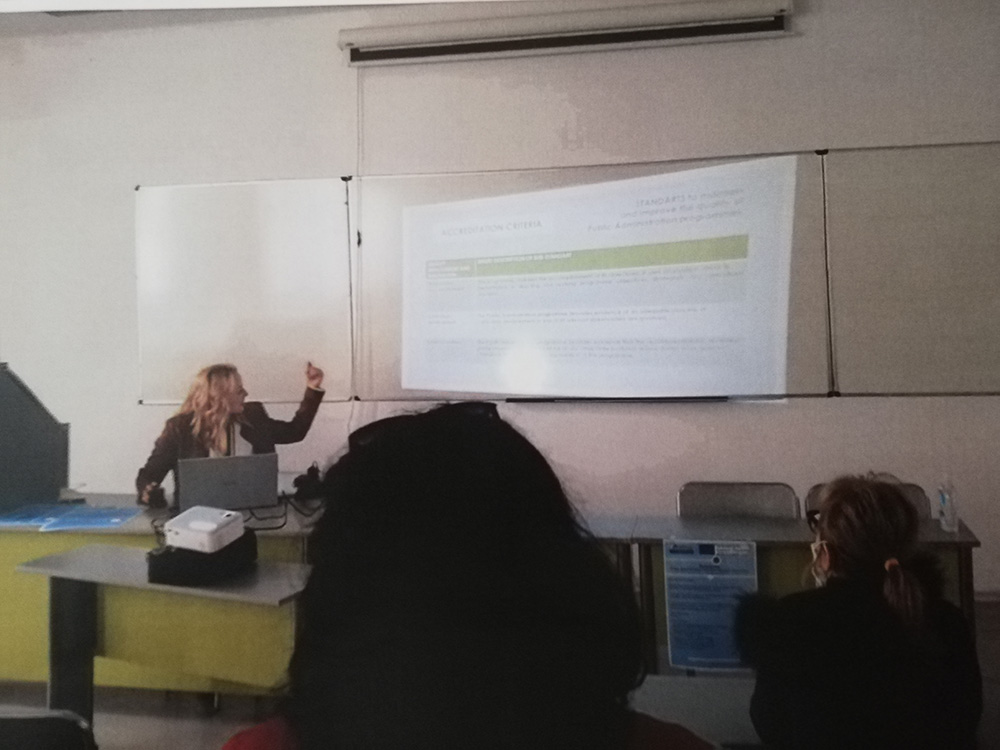
.jpg)
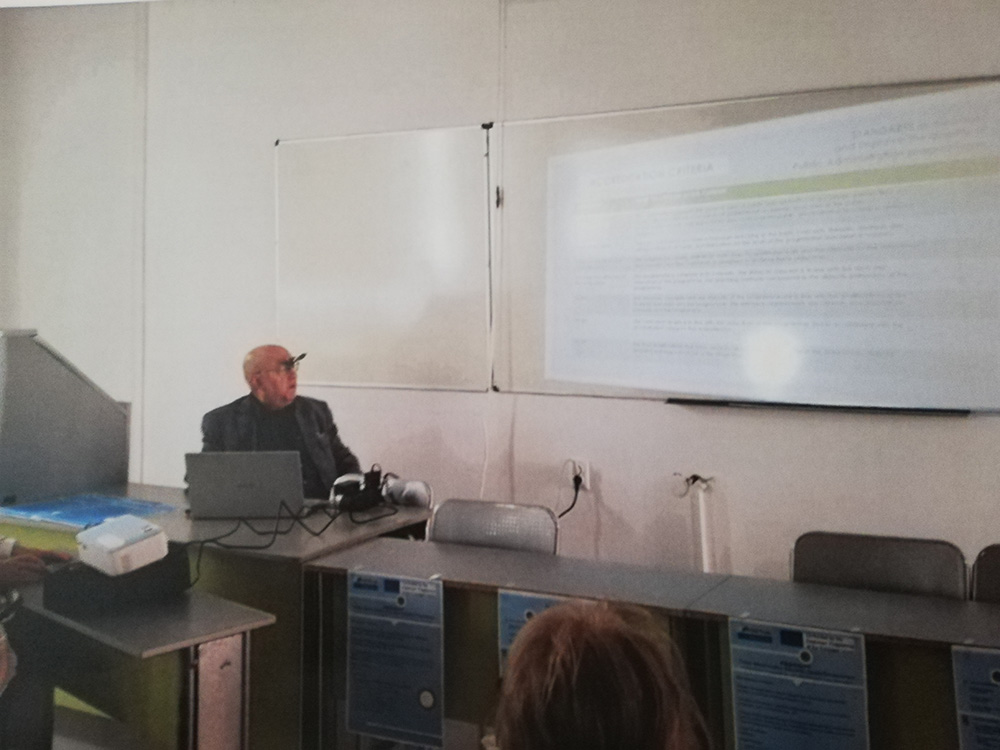
On 01.05.2021, with the participation of all partner organizations, the last partnership meeting was held under the "2018-1-SK01-KA203-046330 “Public Administration Education Quality Enhancement – PAQUALITY” Project, Erasmus + Program, KA2, " Strategic partnerships".
Each of the partners presented a short report on the results of already implemented events for dissemination of the results.
Progress on the implementation of O4, O7 and O8, which are to be completed with the assistance of all partners, was then discussed.
In conclusion, the project coordinator from the lead organization explained when and how to submit the final technical and financial reports on the project.

3rd Transnational Project Meeting - Virtual
Hosted by Corvinus University, Budapest, Hungary, November 2020
A Final Meeting of project partners was held virtually on November 20, 2020
Meeting coordinator: Corvinus University in Budapest.
Programme:
Welcome of the meeting participants by Gyorgy Hajnal, NISPAcee President
0. Review and approval of the agenda.
1. Second year of the project implementation
2. Report of The Project Quality Assessment Committee
3. Review of IO4
4. Review of IO5
5. Review of IO6
6. Preparation for IO7
7. Preparation for IO8
8. Multiplier events planned for the second half of 2020 in Romania and Slovenia
Multiplier events planned for 2021 – Hungary, Czech Republic, Slovakia, Bulgaria
9. Dissemination activities of project partners
10. Project IMPACT
11. Open issues to be decided by the project Board
12. Outlines of IO7 and IO8 and division of tasks
Project Workshop C1- Varna, Bulgaria -virtual
Term: November 4 -6, 2020
Local organizer/host: Varna Free University
Due to the Corona pandemics the workshop was organized in a virtual form via the Google Meet platform.
Based on the 3 days program of the workshop, review and analysis of all materials and discussions, participating partners would develop a final version of the material, which would be reviewed and commented by all other partners and finalized and published on the project website and widely disseminated as the Intellectual Output 5 of the project.
The workshop focused on development of competencies relevant for practice.
The program of the workshop was focused on analyses of the current PA programs and their relevance for practice. The main aim of the activity was to identify teaching and learning approaches, which combine theoretical and scientific knowledge on the one hand with practice oriented action on the other hand. In reaching this aim the work-group focused on innovative teaching and learning methods, assessment methods, resources and competencies which lecturers need to support students to develop skills, competencies in public administration relevant for the practice.
The methodology of competency-based curricula development was utilized. This links theory to practice, and a gap between competencies needed in practical work in public administration and those obtained in the educational programs should be bridged. Therefore, the examination of the value of core competencies of study programs in PA for the practice was examined, if a relevance for practice is contended. These activities were also supported by surveys and interviews of employers of graduates of particular study programs under consideration, which were implemented under the Intellectula Output1.
Development of competency-based curriculum is based on the fact that competency outcomes drive curriculum objectives and programs have learner-centered orientation, and therefore, the identification of specific competencies of public administrations' is needed to develop efficient and appropriate curricula.
University of Ljubljana had a leading role in the workshop preparation and the program substance in cooperation with Babes-Bolyai University and Masaryk University. Subsequently, the Ljubljana University will be a leading organization in the development of the Intellectual Output5.
There were 9 participants from Bulgaria (4 from Varna and 5 from other parts of Bulgaria) and partners from Ljubljana University 2, Masaryk University 3, Babes- Bolyai University 2, NISPAcee 2 (observers).
Resources: Intellectual outputs O1, O2,O3,O4, EAPAA evaluation criteria
Output: Intellectual Output O5




The project aims to support changes in the area of public administration education in conformity with Bologna objectives, mainly:
• Promotion of European co-operation in quality assurance with a view to developing comparable criteria and methodologies.
• Promotion of the necessary European dimensions in higher education, particularly with regards to curricular development, inter-institutional co-operation, mobility schemes and integrated programs of study, training and research, which havan’t been fully applied in the area of the public administration high education in Slovakia and the new EU states yet.
High education public administration programs vary a lot especially in the Central and Eastern European member countries of the EU - in the new EU member states (NMS). From this perspective it is highly relevant to facilitate quality assurance mechanism which would ensure not only comparable quality of education processes but also comparable outcomes of the education (e.g. quality of graduates, their knowledge, skills and experience) in these countries, which are core in these regards within the NISPAcee region (see D1). EAPAA (European Association of Public Administration Accreditation) accreditation and certification criteria will be reviewed and applied for these purposes.
In addition, the project aims at tackling skills gaps and mismatches in the area of public administration high education through designing and developing curricula that meet the learning needs of students that are relevant to the labor market and societal needs, including through better use of open and on-line, work based, multi - disciplinary learning and new quality assessment criteria. Simultaneously, with a view of this priority, promoting and rewarding excellence in teaching and skills development, training of academics in new and innovative pedagogical approaches, new curriculum design approaches and sharing of good practices through collaborative platforms will be in the center of the project.
In order to achieve these priorities, EAPAA criteria focused on faculty qualifications and skills will have to be promoted and implied, mainly in the New Member States where this seems to be the major weakness of many PA programs.
Leading organization is NISPAcee, Slovakia.
The other partners in the project are:
European Association for Public Administration Accreditation, Netherlands
Masarykova univerzita, Czech Republic
UNIVERSITATEA BABES BOLYAI, Romania
UNIVERZA V LJUBLJANI, Slovenia
BUDAPESTI CORVINUS EGYETEM, Hungary
UNIVERZITA MATEJA BELA V BANSKEJ BYSTRICI, Slovakia
EKONOMICKA UNIVERZITA V BRATISLAVE, Slovakia
UNIVERZITA PAVLA JOZEFA SAFARIKA V KOSICIACH, Slovakia
More information could be found on: www.nispa.org/paquality
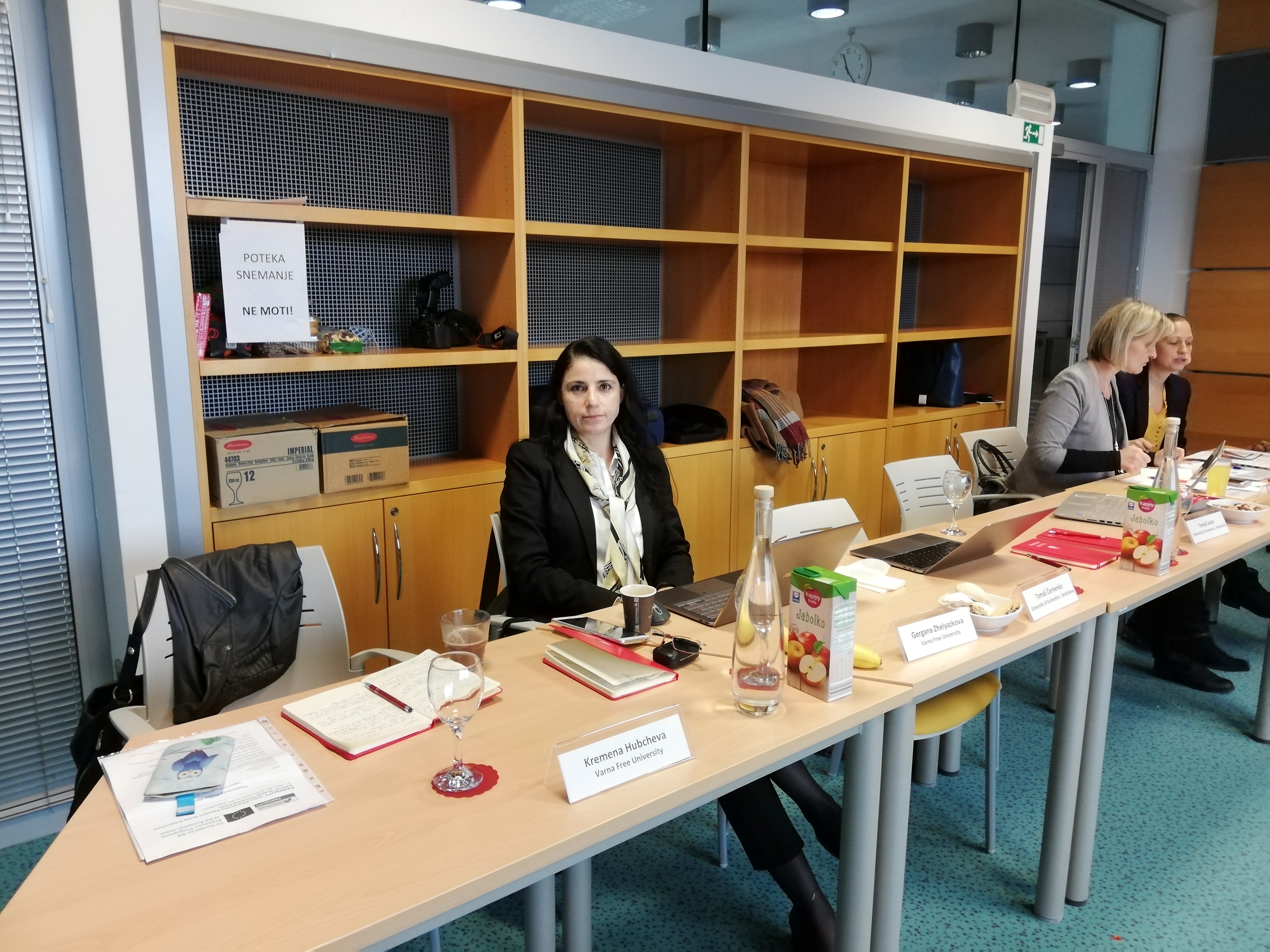
On 15.01.2019 in Ljubljana, Slovenia was held the second partnership meeting under the "Improving the quality of education in public administration - PAQUALITY" Project under the Erasmus+ Program, KA2 "Strategic Partnerships". Representatives of all partner organizations attended the meeting.
During the meeting, the implementation of the activities in the first year of the project was discussed, as well as the submitted and positively evaluated first interim partner report. The completed intellectual results (O1 and O2) were reviewed. The upcoming O3 closure was also considered, presenting and discussing 11 program evaluations, which should be finalized after the conclusion of the meeting based on discussions and clarification of questions by evaluators. In terms of intellectual output O4 it was reviewed the list of possible programs interested in external evaluation. The responsibilities of the partners in the evaluation and consultation of evaluation programs were shared.
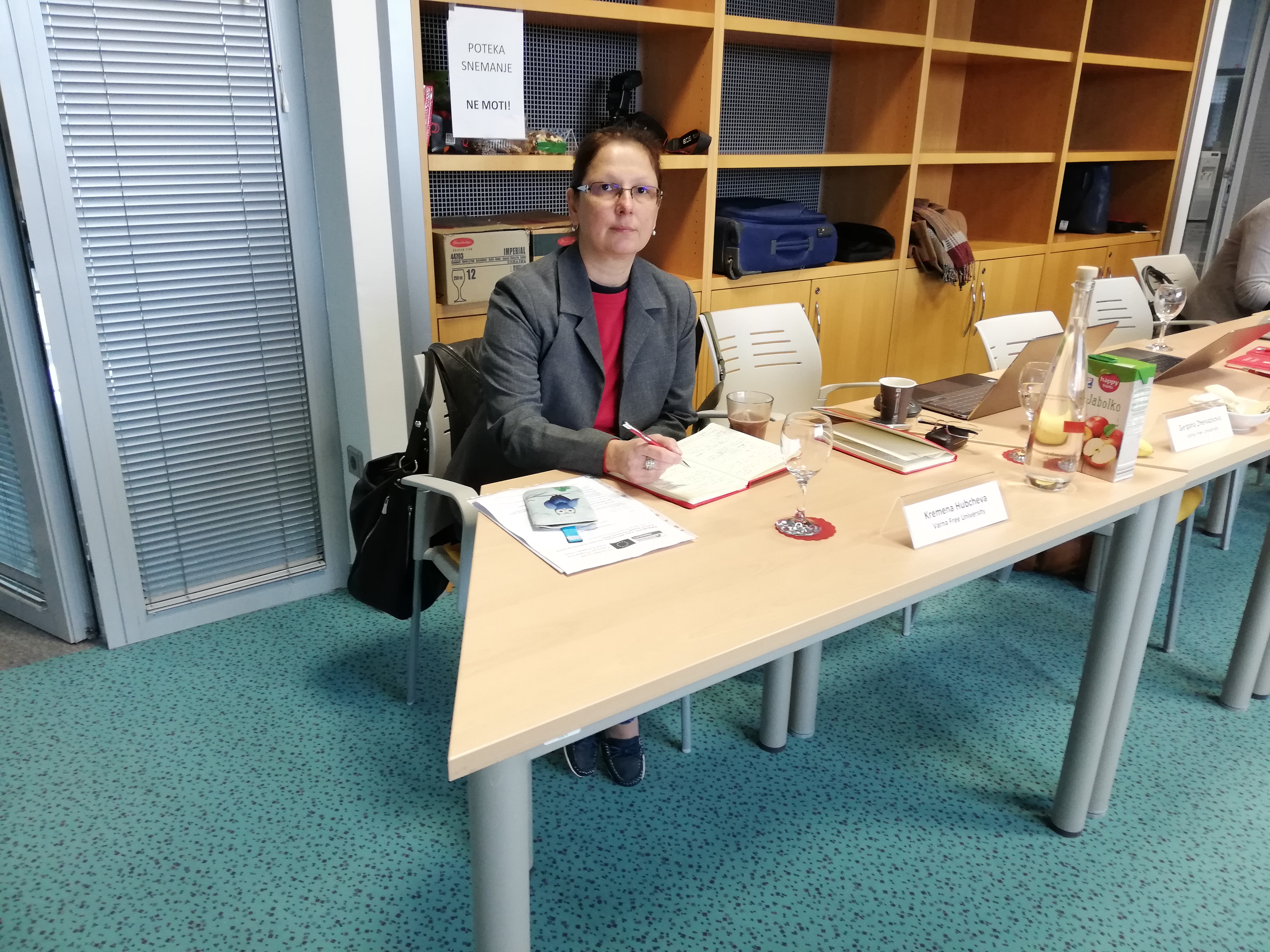
A report from the Project Quality Assessment Committee was presented.
With regard to intellectual outputs O5 and O6, a review of the methodological framework for the development of competencies related to the practice was carried out, as well as the preparation of the seminar to be held in Varna in the second half of June 2020.
Dissemination events are planned for the second half of 2020 in Romania and Slovenia.
The possibilities of including more activities for disseminating project results were discussed.
First project partnership meeting under „2018-1-SK01-KA203-046330 Public Administration Education Quality Enhancement – PAQUALITY“ Project.
On 23.11.2018 in Bratislava, Slovakia was held the first partnership meeting under the project "2018-1-SK01-KA203-046330 Public Administration Education Quality Enhancement - PAQUALITY".
The meeting was held at the University of Economics in Bratislava and was attended by representatives of all partner organizations from Slovakia, the Netherlands, the Czech Republic, Romania, Slovenia, Hungary and Bulgaria. Each of them presented their organization, expressed their expectations of the implementation of the project and discussed the planned activities. The commitments of each partner and the implementation deadlines were clarified.
The meeting started with a project review, an explanation of activities and expected results, project administration, reporting, financial issues and documents related to project accountability.
The management and implementation of activities in the first year of the project, as well as the intellectual results to be achieved during the period were discussed.
The content, deadlines and the division of responsibilities between the dpartners were discussed in details.
A plan for communication and dissemination of results, activities and responsibilities was presented.



